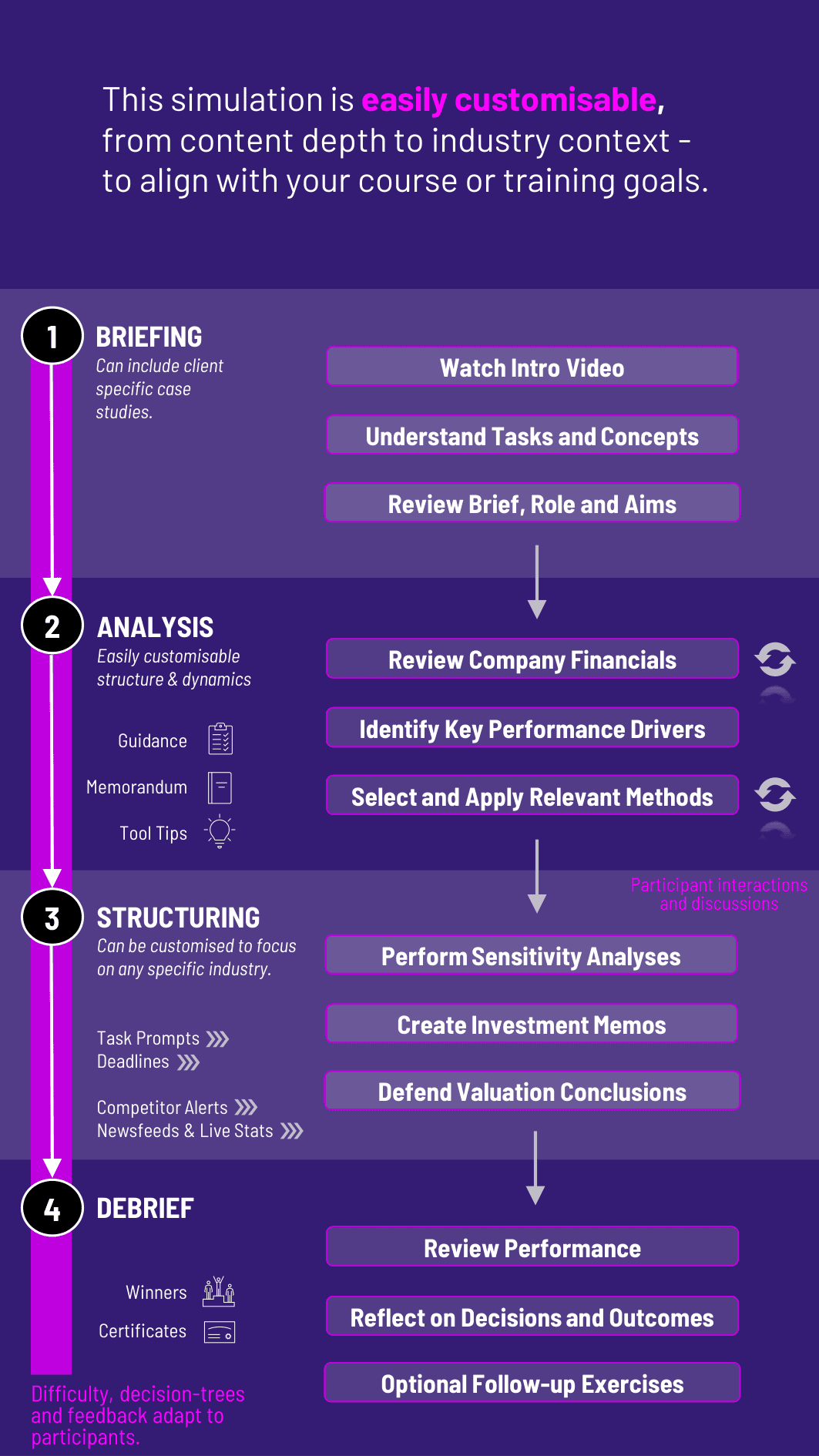
Participants build end-to-end financial models from scratch - forecasting performance, valuing businesses, and presenting deal-ready outputs - in our Financial Modeling and Valuation Training.
Three-Statement Modeling: Building and linking income statement, balance sheet, and cash flow statement
Forecasting Drivers: Revenue growth, margins, working capital, and capex assumptions
Valuation Techniques: DCF (discounted cash flow), precedent transactions, and public comparables
WACC and Terminal Value: Calculating discount rates and perpetuity/growth exit methods
Sensitivity and Scenario Analysis: Testing key drivers and downside cases
Model Accuracy and Integrity: Circularity, audit checks, and dynamic formula design
Executive Summaries: Creating board-level outputs from detailed financial work


Receive a company’s historical financials and qualitative background
Identify key performance drivers and build a fully integrated financial model
Select and apply relevant valuation methods (DCF, comps, transactions)
Perform sensitivity analysis and calculate valuation ranges
Create investment memos, board decks, or client-ready valuation summaries
Defend modeling logic and valuation conclusions to simulated stakeholders
The training builds technical mastery and decision-making confidence. Participants learn how to:
Translate financial statements into dynamic forecasting tools
Think critically about business assumptions and valuation logic
Choose appropriate methodologies for different types of companies or deals
Structure clear, audit-proof models used in real investment settings
Communicate complex models in a concise, strategic format
Understand the expectations of investors, clients, and senior executives
Do participants need Excel modeling experience? Basic spreadsheet fluency is recommended. The training includes guided steps and audit tools for newer users, but is challenging enough for advanced participants too.
Is this training technical or strategic? Both. participants build detailed models and use them to form business conclusions and investment recommendations.
What company types are included? The default training uses a mid-market operating business with real-world complexity. Other sectors (e.g., SaaS, manufacturing, retail) are available upon request.
Can participants use different valuation approaches? Yes. They can apply DCF, trading comps, and precedent transactions and are encouraged to triangulate valuation outcomes.
How long does the training take? 6 - 8 hours for a full build, with optional extensions for deeper reporting, investor pitches, or presentation rounds.
Is it better for individuals or teams? Both formats work well. Teams can split model building, memo drafting, and valuation defense roles to mimic real-world team workflows.
How is performance evaluated? Assessment includes technical accuracy, valuation rationale, model structure, and communication clarity - both written and verbal.
Does the training include pitch presentations? Yes. Participants deliver summary presentations or memos justifying their valuation, which are evaluated for clarity, realism, and insight.
Are there error-checks or audit tools? Yes. Built-in features help participants debug formulas, check linkages, and ensure output consistency.
Can instructors customize scenarios or assumptions? Absolutely. Instructors can choose company types, set custom scenarios (e.g. IPO, M&A, growth capital), and adjust inputs for different participants levels.
Join this 20-minute webinar, followed by a Q&A session, to immerse yourself in the training.
or
Book a 15-minute Zoom demo with one of our experts to explore how the training can benefit you.